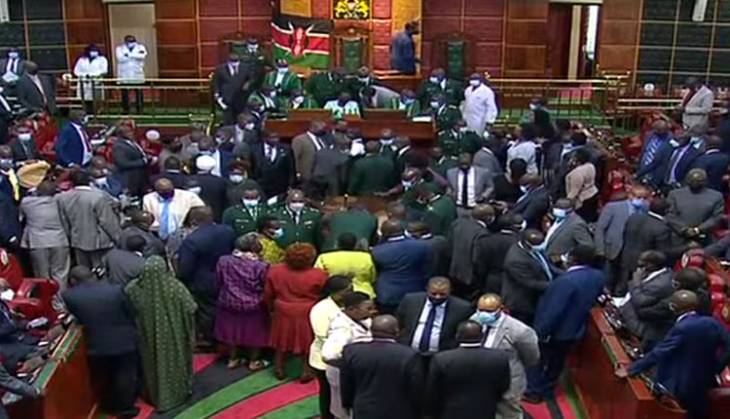Reflections from the past as we settle in New Year
By Levi.Obonyo, January 7, 2022This country is certainly evolving and its institutions are supposed to be maturing.
This appears so in some cases while there is retrogression in others. It does require a bit of a historical perspective to place this in context.
Certain institutions have always been strong. One of them is the church. In the clamour for political pluralism, it was not the religious leaders in totality, who came out to press the government to grant citizens their rights, but specifically it was the voice of the church that stood out.
There may have been a few renegade Muslim clerics who occasionally came out with their positions, but they were isolated and at the periphery of the faith’s main institutions.
For the church, their clerics were right in the middle of calling for the government to relent and allow citizens to enjoy their rights of association, of speech, and of movement among others.
Such names as Obadia Kariuki, Henry Okullu, Alexander Kipsang arap Muge, Timothy Njoya, David Gitari, Ndingi Mwana wa Nzeki, Maurice Cardinal Otunga and a host of Catholic Priests among others, were right in the middle of this campaign. Many of them paid dearly for their beliefs.
Then there is the group of university teachers and their student who made life difficult for the government in their call for political liberalization. This group probably paid the highest price.
Lecturers were exiled, detained, or jailed. Some were fired from their university teaching positions, evicted from university housing and so on. Their students were not spared either.
Some were expelled, others detained without trial, still some were jailed. Titus Adungosi, the peasant boy from Busia who died in jail, still captures the sacrifices of this group.
The fire in the belly of some in this group has not gone off. The radicalism of Miguna Miguna speaks to the DNA drawn from this age that even exile could not quench. That zeitgeist survives in men such as James Orengo even in the Senate.
The other group is the media. It has been in this fight since the launch of the radical pamphlet in 1923 agitating for the return of land to the Africans.
They did not relent in the late 1940s and even the burning of radical newspapers in 1952 did not kill the spirit.
It is something that the media continued with and paid some heavy price in the 1980s and the 1990s.
Some media houses were banned, some publications proscribed, journalists detained without trial or jailed, some foreign ones deported, printing presses were disabled all in the name of fighting dissent.
Few in the journalism profession today remember such names as Pius Nyamora, still living in exile.
As we start this New Year with the promise of elections in seven months’ time, it helps to reflect on our journey to free and fair elections and probably wonder, whether some of these institutions that for long stood for the expansion of democratic space still hold on to these ideals.
The church seems now muddled and lost in search of identity. Timothy Njoya among others, in retirement, now watch their successors from the sides.
The church is now lost in either seeking wealth or philosophical relevance in the parley of religious community.
The university is essentially stuck in a civil war. It is the battle setting lecturers against their administration or students against the administration, with the main price being the individual welfare. The idealism of yesteryears seeking a better society is no more.
The less said about the media for now the better, the media of today hardly stands out for anything.
The television sector is obsessed with looks while the radio is yet to establish what it stands for: raunchy talk or the promotion of otiose personality?
The print media wonders whether it will be there tomorrow while the itching fingers of social media warriors is the epitome of nihilism.
It is worth reflecting what happened to our institutions. —The writer is dean, School of Communication, Daystar University
